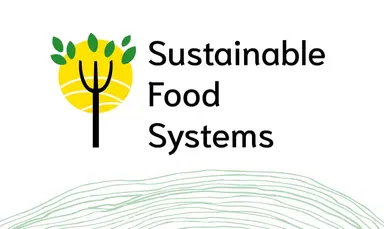Events & Media Report | 05 Aug 2024
Making a global impact through local actions
How can cities contribute to the food systems transition? In this article you will find the main insights coming from a workshop co-organised by FOODPathS at the ICLEI’s CityFood Programme.
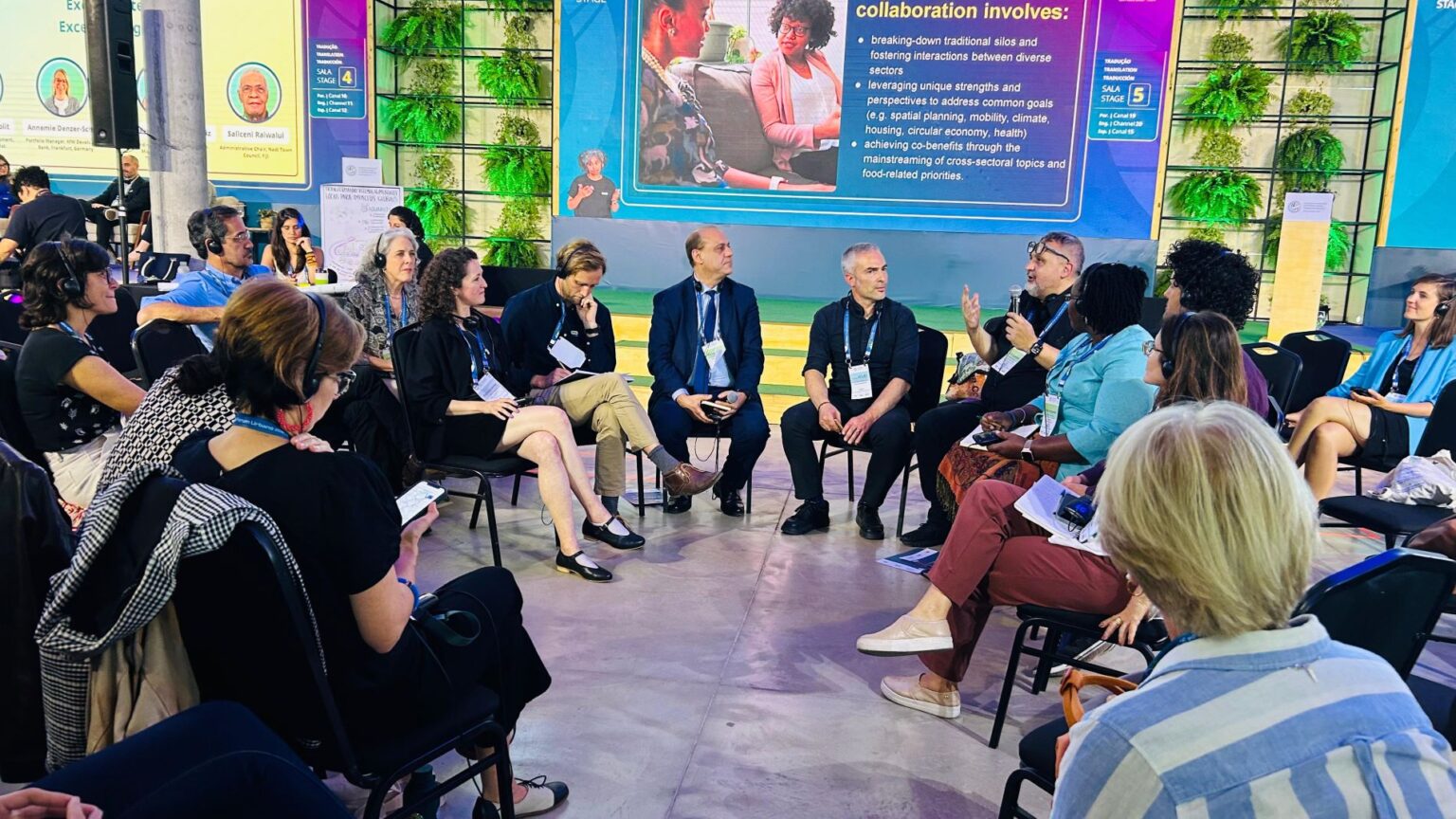
Last June, ICLEI organised its own World Congress 2024 in Sao Paulo (Brazil) with the scope of sustainable urban development for adaptation to local, and regional challenges for a global impact, including the discussion on transforming food systems from local to global. In this context, the ICLEI’s City Food Programme organised the workshop “Transforming local food systems for global impact”, together with other projects and initiatives, including FOODPathS. The session was focused on three main topics: 1) how to ensure healthy food environments? 2) how to make the food system governance more inclusive? 3) how to create cross-sectoral alignments and collaboration?
Local representatives from different continents joined the workshop to share challenges, good practices and lessons learned on local food transitions for a global impact. During the session, an illustrator summed-up the discussion and the main insights in colorful visuals, presented in this article together with main points emerged.
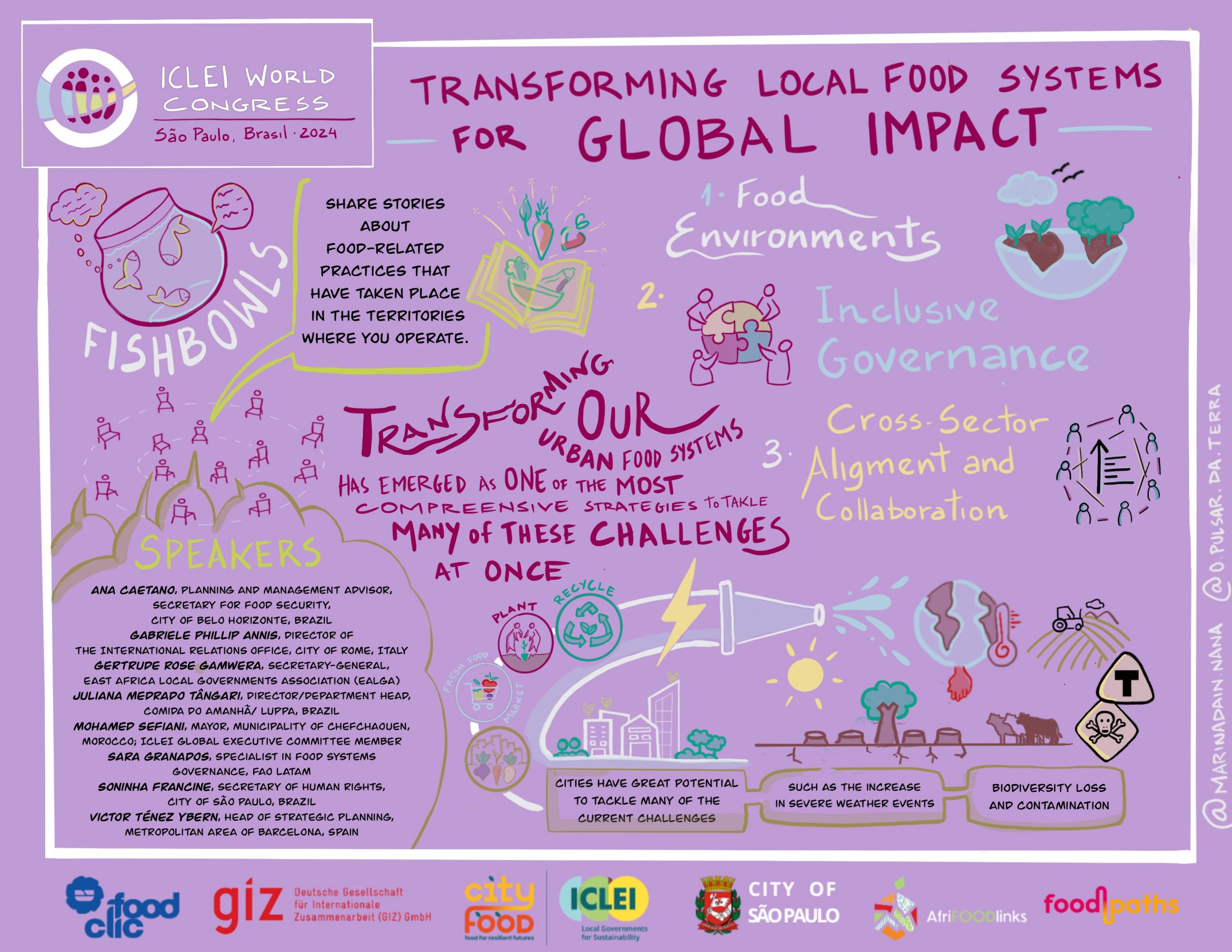
Food environments can build rural-urban linkages.
The environments where we get our food are social and political spaces that influence our daily choices about what, where, when, and with whom we eat. There have been differences between urban and rural areas regarding this, with rural food supply chains often shorter and based on local production, while in urban areas it is the opposite. By shortening supply chains and encouraging activities such as urban agriculture, cities can support local and regional economic growth while also benefiting the environment. This approach can help cities move closer to ensuring that everyone has the basic right to food.
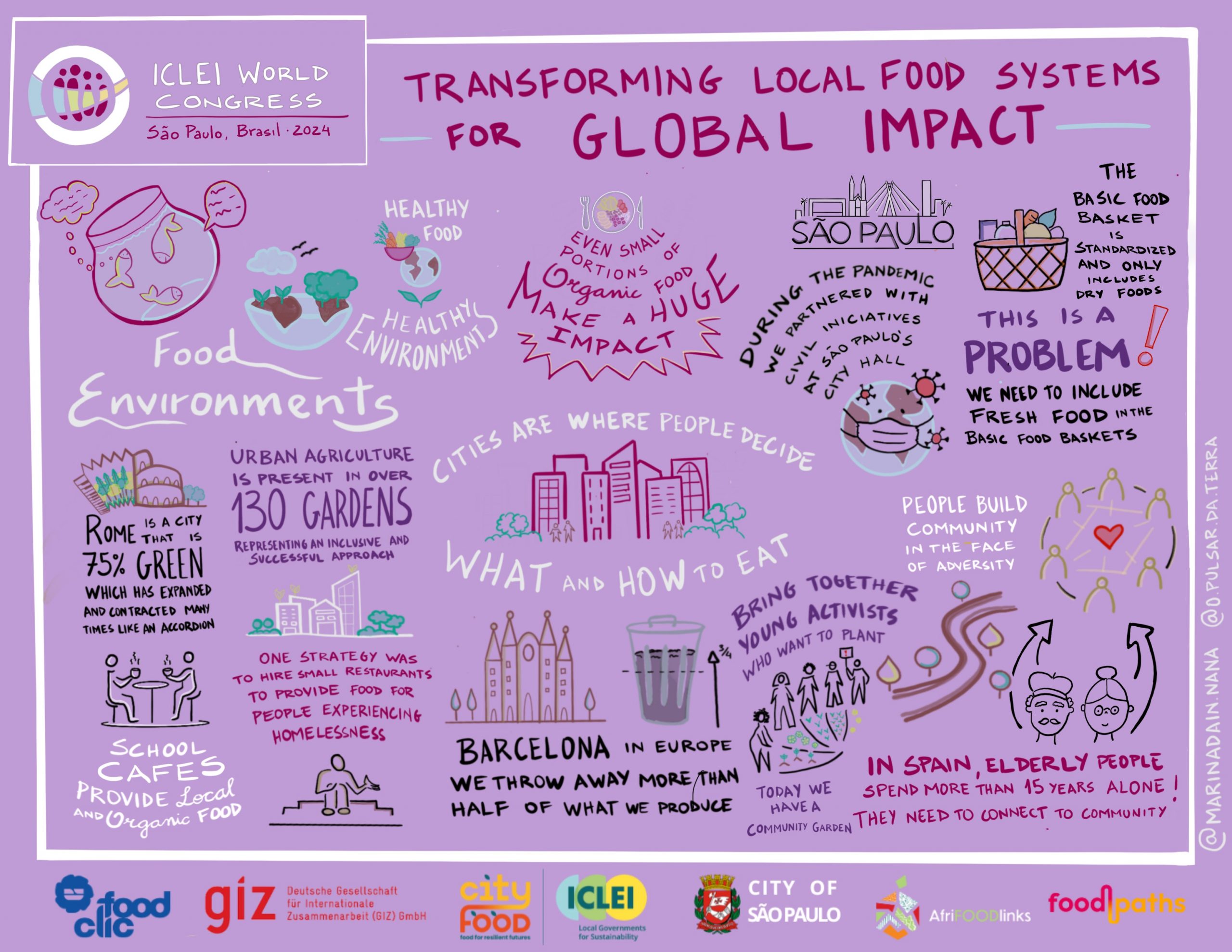
Inclusive governance is a collaborative approach.
Food systems are highly complex and there are strong interdependencies across societies, economies, cultures and landscapes, therefore inclusive governance can play a key role in engaging diverse voices to co-create, address problems and find common goals.
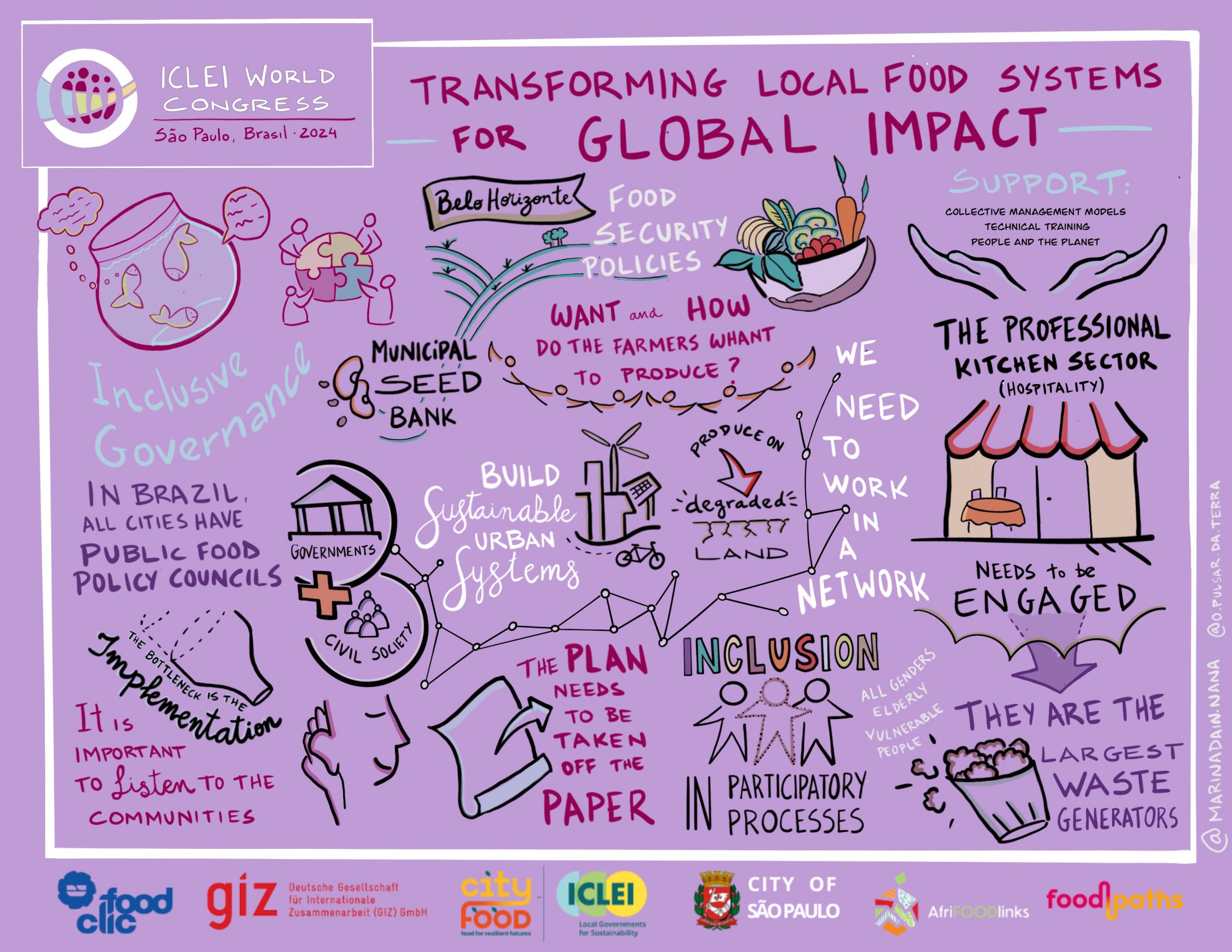
Cross-sectoral topics can help achieving co-benefits.
Alliances between different sectors and collaboration can promote interactions and leverage their strengths and perspectives to achieve shared objectives and break traditional silos.
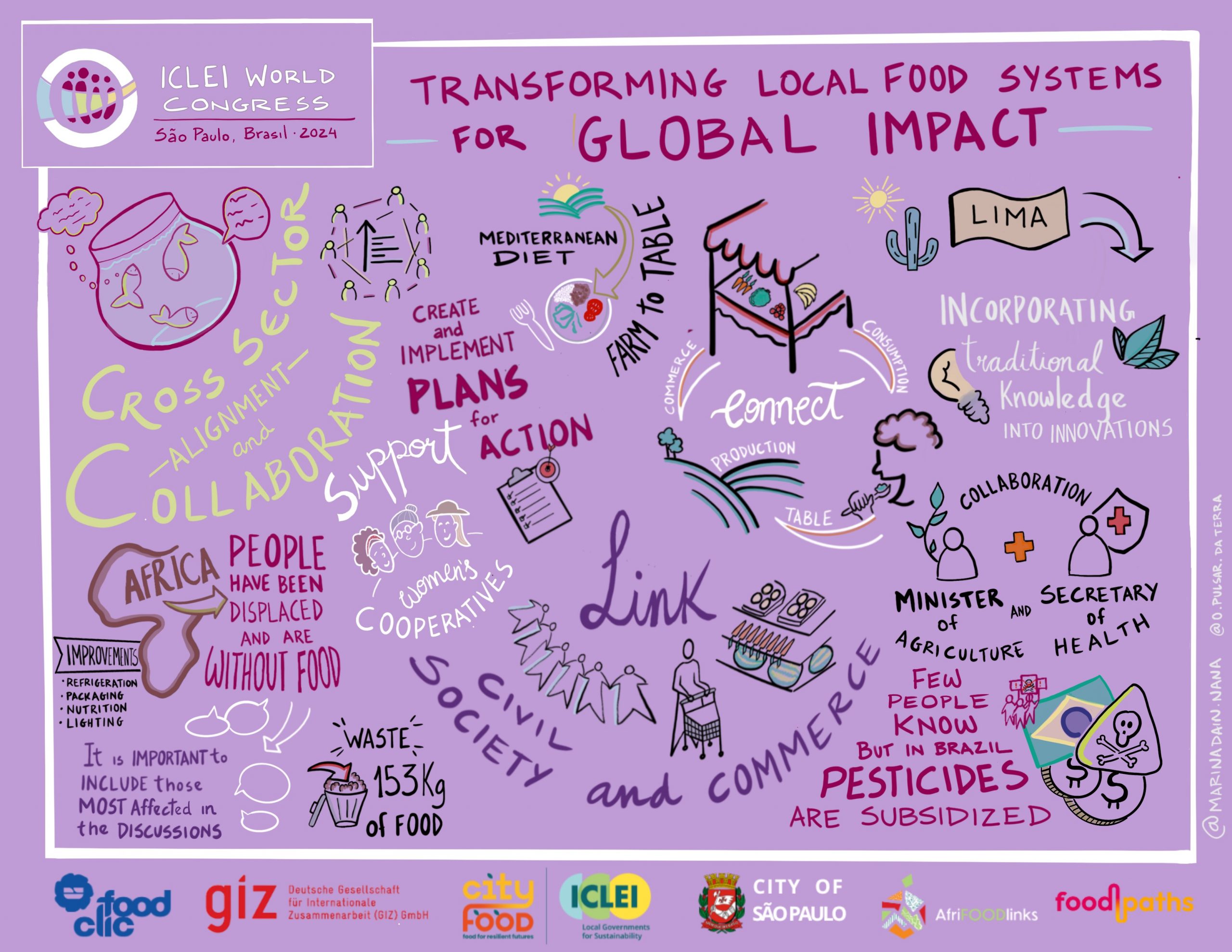
A longer report about the workshop is available on CityTalk, a blog by ICLEI.
